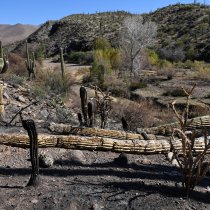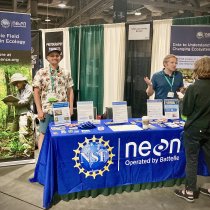Apply now for NEON’s Data Institute: Remote Sensing and Reproducible Workflows
February 23, 2017
The 2017 Data Institute: Remote Sensing with Reproducible Workflows provides a unique opportunity for participants to gain hands-on experience working with open data using well-documented, reproducible methods. Participants will also gain important applied knowledge about using heterogeneous remote sensing data sources to answer spatio-temporal ecological questions. The Institute will take place at NEON headquarters in Boulder, CO from June 19-24, 2017. Applications are due by March 10, 2017.
Using remote sensing data for ecological research
Through data intensive, hands-on activities, we will cover topics including:
- Fundamental concepts required to open, visualize and process data stored in different coordinate reference systems, and at different resolutions&spatial scales
- The importance of thoughtful, well-documented open science workflows and methods
- Scientific spatio-temporal applications of remote sensing data using open tools including Python
- Using remote sensing data products with in situ data to quantify uncertainty associated with estimates of vegetation structure, composition and chemistry
A deep dive into NEON’s Airborne Observation Platform
During the course, participants will work with hyperspectral, lidar and camera data collected by NEON’s Airborne Observation Platform (AOP). They also learn about the ways remote sensing processing methods impact how data can be used in science; and they get to tour the NEON calibration facilities to gain a deeper understanding of the importance of calibration to reduce data uncertainty during collection and processing.
Who should apply
This Data Institute is geared towards graduate students and early career scientists who have some programming experience and want to develop critical skills and foundational knowledge for working with heterogeneous spatio-temporal data to address ecological questions. Qualified applicants are required to have some prior basic experience in the Python programming environment (or experience in another programming environment and willing to learn Python). All participants must bring their own laptop to participate in the hands-on data activities.


